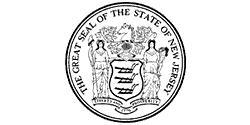

STATE OF NEW JERSEY
Division of The Ratepayer Advocate
31 Clinton Street, 11th Fl.
P. O. Box 46005
Newark, New Jersey 07101
News Release
For
Immediate Release |
For
Further Information |
Trenton, NJ – Ratepayer Advocate Seema M. Singh announced her support for legislation to establish minimum energy efficiency standards for appliances and equipment sold or installed in New Jersey.
“Energy efficiency programs are a low-cost, high-benefit way to meet society’s ever-increasing energy needs,” the Ratepayer Advocate said in testimony submitted to the Assembly Telecommunications & Utilities Committee at a hearing today on the bill, A-516. Ms. Singh praised Assemblywoman Bonnie Watson Coleman, Committee Chairman Assemblyman Wilfredo Caraballo, and Assemblyman John McKeon for sponsoring the bill.
“Every avenue should be explored to reduce our energy consumption and increase energy efficiency,” Ms. Singh said. “This would, in turn, reduce the strain on our electric transmission system. Substantial economic and environmental benefits can be achieved from new efficiency standards.”
Energy efficiency standards for appliances and equipment establish a minimum for the efficiency of converting input fuel --electricity, gas, or oil -- into useful energy. Under the bill, appliances that use more input energy than the minimum set by these standards could not be sold in New Jersey.
Ms. Singh explained that appliance efficiency standards were first instituted
by several states in the 1970s. When the National Appliance Energy Conservation
Act was passed in 1987, it established federal efficiency standards. Federal
standards replaced most state standards, and were expanded over time to include
dozens of types of energy-using appliances and equipment.
The U.S. Department of Energy and the American Council for an Energy-Efficient
Economy (ACEEE) have documented the benefits of the federal efficiency standards.
For example, new refrigerators today use less than one-third of the electricity
than back in 1976, when California introduced the first refrigerator efficiency
standards.
Not only do these appliances consume less energy, they also cost much less to buy today, Ms. Singh said.
“While the federal appliance efficiency program has accomplished much, it has been at a plateau over the past few years, taking only relatively modest steps compared to what is possible in light of new technology,” the Ratepayer Advocate said. “For this reason, several states are looking at appliance efficiency standards again.”
“Energy efficiency reduces the growth in demand for electricity, gas, and oil,”
said Ms. Singh. “It enables us to do more with our finite energy resources.
It reduces consumer costs to meet energy needs. It reduces the emissions of
harmful air pollutants as well as emissions of carbon dioxide, which contributes
to global warming. State appliance and equipment efficiency standards will help
to realize these benefits of energy efficiency. For these reasons, we support
this bill.”
The bill covers certain products that are not regulated by the federal government.
The appliances and equipment covered by the bill include commercial clothes
washers; commercial refrigerators and freezers; illuminated exit signs; large
packaged air-conditioning equipment; low-voltage dry-type distribution transformers;
torchiere lighting fixtures; traffic signal modules; and unit heaters.
*
The Division of the Ratepayer Advocate is an independent state agency that represents the interests of utility consumers and serves as an active participant in every case where New Jersey utilities seek changes in their rates or services. The Ratepayer Advocate also gives consumers a voice in setting long-range energy, water, and telecommunications policy that will affect the delivery of utility services well into the future.
Additional information on this and other matters can be found at the Division of Ratepayer Advocate’s website at http://www.rpa.state.nj.us